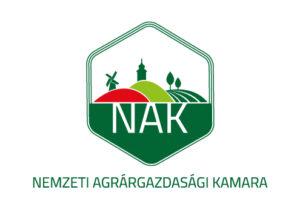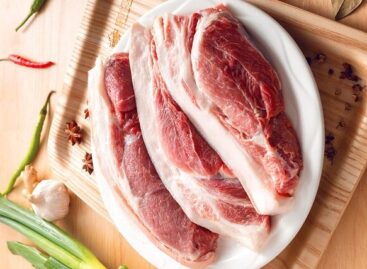The working group of the Chamber of Agriculture recommends further steps to deal with market disturbances caused by Ukrainian grain
The National Chamber of Agrarian Economy (NAK) welcomes the temporary import ban on grain and oilseeds and other agricultural products originating in or coming from Ukraine. The chamber working group investigating the market situation caused by Ukrainian grain also calls for further steps: a proposal for strict supervision of grain deliveries, the reinstatement of customs duties, an increased examination of Ukrainian grain due to its health risks, and the withdrawal of domestic corn infected with mycotoxins as soon as possible. In the past few days, the presidents of the Hungarian and Polish Chambers of Agriculture discussed the crisis caused by Ukrainian grain.

The Arable Crop Production and Supply Industry Department of the National Chamber of Agriculture (NAK) formed its working group at the end of March, which examines, with the participation of grain growers and other market participants, what steps can be taken to mitigate the crop market crisis caused by the influx of Ukrainian grain.
There is still work to be done
NAK welcomes the government’s temporary import ban on Ukrainian grain, oilseeds and other agricultural products until June 30, 2023, and related measures. According to his working group, further steps should be taken in two areas. One is the emptying of the warehouses, since in about two months the harvesting of autumn barley and then autumn wheat will begin in Hungary. Producers are recommended to sell mycotoxin-contaminated domestic corn as soon as possible, for example for bioethanol production. To help with this, the National Association of Grain Growers (GOSZ), the Association of Hungarian Farmers’ Cooperatives and Farmers’ Associations (MAGOSZ), and the NAK are assessing the amount of toxic corn still waiting to be sold. The working group strongly asks the producers to refrain from “diluting” these items with the new crop, as this could lead to a serious loss of confidence in the market, and the new crop will be unsellable. Farmers without storage capacity are advised to look for a warehouse now to store their crops waiting to be harvested in the summer. The other urgent task is the regular operation of the transit corridor, which is supported by the measures included in the government decree published on April 18, 2023. The working group also proposed that shipments entering the Schengen borders be escorted through the country by the customs authorities, and in the case of goods arriving from within the Schengen area, they consider it justified to increase the number of in-depth inspections. The working group also suggested restoring customs duties, so that 20 percent of the customs revenues could be used by the member countries to deal with market disturbances, and 80 percent would be returned to Ukraine as aid through the mediation of the EU.
Ukraine and other third countries use many pesticides that were banned in the EU years ago
For this reason, the health risk of food products produced from grain produced outside the European Union arises – as the tests of Ukrainian grain in Hungary and Slovakia also showed. Therefore, food and feed raw materials from third countries must be checked even more closely than before, and in order to protect the health of people and animals, the use of items that were not produced in accordance with EU rules must be limited.
The leaders of the agricultural chambers agree
Recently, Balázs Győrffy, the president of NAK, held a video conference with the president of the Association of Polish Agricultural Chambers (KRIR) regarding the market situation caused by Ukrainian grain. According to Wiktor Szmulewicz, the fact that grain is not arriving from Ukraine for the time being does not help Polish farmers: warehouses are full there, as in Hungary, transit through the country is tying up port capacities, and cheap Ukrainian grain is displacing Polish crops from their former export markets. The presidents of the Hungarian and Polish Chambers of Agriculture agreed that in order to protect their own farmers and markets, they must act together with each other and with the other countries concerned against the thoughtless decisions of Brussels.
NAK
Related news
The Ministry of Agriculture has issued a notice on the use of ENAR data in support policy
In the case of animal-based subsidies financed from EU funds,…
Read more >Dishes made from Hungarian pork should be on the holiday table!
Not only fish dishes are in the spotlight during the…
Read more >Farmer-centric agricultural policy after 2027 receives unanimous support
The EU member states’ agriculture ministers have adopted Council conclusions…
Read more >Related news
Recognition of Consumer Protection Excellence: Honoring the Best of 2024
This year’s outstanding consumer protection officers and special award recipients…
Read more >The Joy of Giving! – SPAR stores collect non-perishable food for people in need
The Hungarian Maltese Charity Service and SPAR Hungary have launched…
Read more >KSH: industrial production decreased by 0.2 percent in October
In October, the volume of industrial production fell by 0.2…
Read more >








